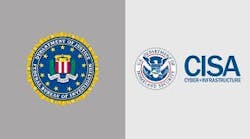THANE: The 26/11 terror strikes seem to have spurred a blind rush to purchase hi-tech gadgets, with government agencies and corporates set to spend crores to enhance security measures.
In Thane, the civic body is understood to have sanctioned Rs 90 lakh to buy 60 CCTV sets, 100 mounted cameras, 14 multi-zone metal detectors, door-frame metal detectors and vehicle-checking machines, among other equipment. The gadgets will be installed at municipal hospitals, auditoriums, ward offices and so on.
The terror attacks have also compelled several commercial establishments, including hotels and cooperative banks, in the city to consider spending on security systems.
Counter-terrorism experts, however, do not think that installing sophisticated surveillance and security systems will reduce the risk. "The terrorist is a mercenary on a mission. His strategy is low-tech with high impact. Hi-tech gadgets will not deter him as he uses infantry tactics to penetrate the defence and cause maximum damage,'' said Probal Dasgupta, a former major in the Indian Army who had seen combat in the Northeast and Jammu & Kashmir.
The former member of the Gorkha regiment said there was an urgent need for a military-cum-management approach to security. "Unless we have an integrated security plan, where hi-tech devices are complimented by specially trained and skilled manpower, the crores spent to provide business to security agencies and vendors hawking their products will prove futile,'' Dasgupta said.
Driving home the point, he said the terrorists who launched coordinated attacks in Mumbai broke all lines of defence at Chhatrapati Shivaji Terminus. "They got in with ease despite the metal detectors and armed personnel. Their only expenditure was on satellite phones. Equally audacious and low-tech was the 9/11 attack in the US where terrorists armed only with box-cutters used aircraft and rammed them into the twin towers. Their only expenditure was on prior pilot training and purchase of flight tickets,'' he said.
"Their strategy is to keep it simple, search for gaps in the security systems and cause mass casualty. The US had the best control over their airspace and the best of hi-tech gizmos. Nonetheless, the gaps were exposed to the hilt and an assault carried out successfully,'' Dasgupta said.
Most public spaces are vulnerable to attacks in spite of the presence of door-frame metal detectors and armed policemen. "The metal detectors are located inside the premises and the police personnel, too, sit inside. Once inside, the terrorist is not going to wait to get caught and will just open fire, as happened at CST on November 26,'' he said, adding that hi-tech devices with low-tech supervision and manpower would result in chaos.
According to him, it is vital to provide regular training to the security personnel and equipping them with the right weapons. "Training them to engage the terrorist in a gun-battle so as to rattle him is mandatory. The terrorist caught at Girgaum Chowpatty was caught because of the resistance put up by the police, which left him confused and ducking for cover,'' Dasgupta said.
Moreover, there is a need for regular shooting practice. "The accuracy of a weapon gets affected if it is not used for long. To avoid dealignment of the weapon, it is important that the police are exposed to firing all sorts of weapons every quarter,'' he told TOI. Dasgupta stressed the need to create a special corp of police trained for such operations. "The civilian police are unable to tackle such incidents and too much time is lost in calling the special forces. The gap between the police and special forces should be filled in by creating a separate armed corp of the police to deal with situations such as the Mumbai terror strikes,'' he added.

